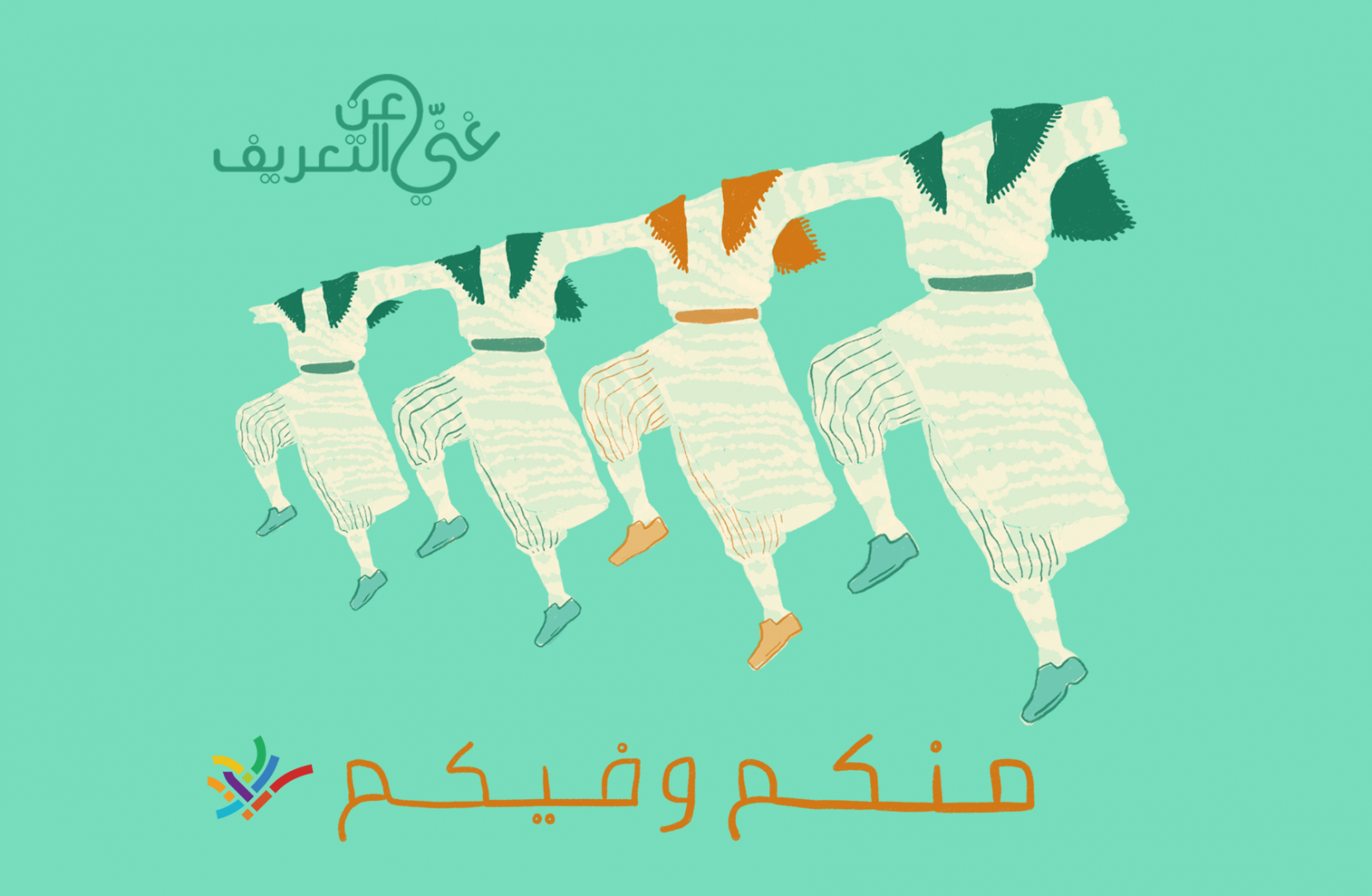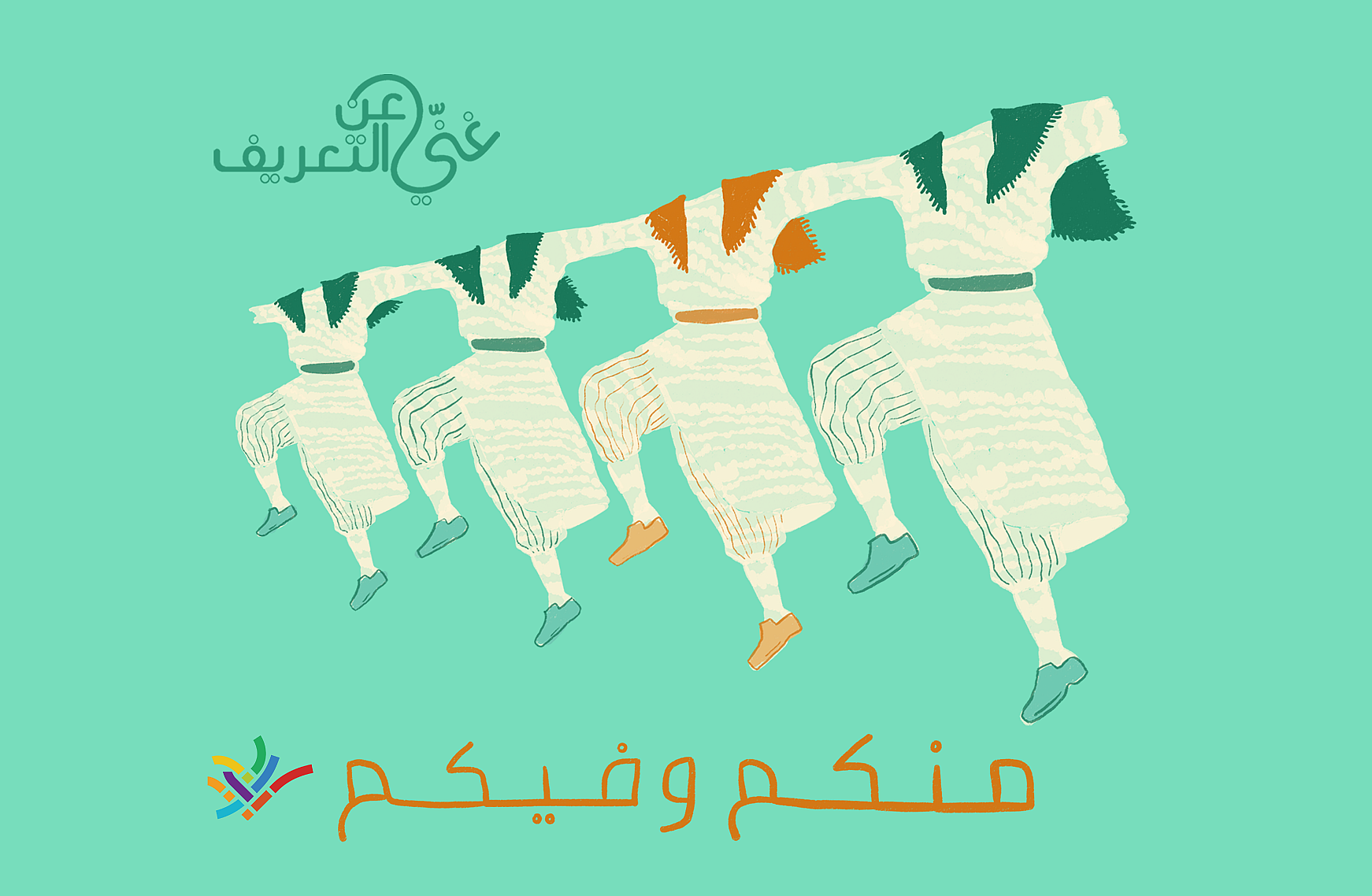Minkom O Feekom is a new musical production, a medley of 4 music tracks, for Ghanni 3an Ta3rif (Singing Sexuality) project, an educational musical project that is led and produced by alQaws for Sexual and Gender Diversity in Palestinian Society. The new medley from ‘Ghanni’ explores how Palestinian and regional traditional (Shami) folk music can be a space to share our lived experiences as LGBTQ Palestinians.
“Minkom O Feekom” is a colloquial way for us to say we are an integral part of society, a statement against social denial and colonial narratives isolating Palestinian queers from Palestinian society, and an invitation for our society to engage in a discussion around sexual and gender diversity in Palestine.
Why Minkom O Feekom?
The project’s idea was brought forth from the solid connection between alQaws activists and the musical heritage of the region. Our musical heritage is always present in our lives; in our celebrations and sorrows, and constitutes a great factor in forming our musical tastes and artistic preferences.
In addition, working on this new medley provided a great opportunity to put forward a political and social statement regarding our existence as LGBTQ Palestinians. In the last two decades we have consistently dealt with deep social denial around our existence as individuals who live different sexual and gender experiences and identities. This social denial is revealed through varying violent narratives that emphasize exclusion and demonization, or refuse to recognize our existence in Palestine and the region in general.
Last year in 2019 marked a peak in visibility for the Palestinian queer movement and alQaws. It also pronounced our ability to strategically confront social denial. The many violent events we have dealt with in the last year has brought the issues of gender and sexual diversity to the forefront of a broad and open social debate that was led by alQaws leadership. “Minkom O Feekom'' concludes a year of tremendous growth and progress, opening a space for sincere discussions around gender and sexual diversity issues. It is a clear statement that we are an integral part of Palestinian society, a part of society that will persistently remain and defiantly thrive.
Minkom O Feekom Musically
Deciding the direction for this musical project was a difficult process for us. On one hand, we had the intention of producing contemporary music that appealed to Palestinian youth that offers a fresh take to the traditional folk sounds we grow up listening to; but on the other hand, we were trying to be conscious enough in order to not to fall into the trap of the consumerist commercialization of music production that is not aligned with the rich musical heritage of our region.
In Minkom O Feekom, we experimented electronically with traditional folkloric instruments, such as the flute, the oud, the buzuq, and other various Arabic-style rhythms. Minkom O Feekom takes you on a resounding journey; from the past to the present to the future, where Arabic maqams and rhythms remain in their traditional essence, but from a contemporary perspective.
Minkom O Feekom - The Songs
Byelba’lek Shak El-almas: the intro song to Minkom O Feekom is a classic in Arabic traditional folk music and is usually played in celebrations and weddings. In the original version of the song, the lyrics convey compliments to a bride or person being celebrated. In Minkom O Feekom, a proud mother is singing to her child Ali, complimenting and celebrating their unique gender expression.
Marmar Zamani: the second song in Minkom O Feekom is a traditional song about the bitterness of love. It was covered by many famous artists in the Middle East, such as Fairuz and Sabah Fakhri. In Minkom O Feekom, a woman's life turns bitter as her female lover struggles with the decision to get married and conform to social norms. However, she decides to challenge the social pressure and confront her family and friends’ disapproval, ultimately getting united with her lover.
Ya Zarif Al-Toul: the third song in Minkom O Feekom is considered one of the most famous in Palestinian traditional folk music. The origins of this song and its historical identity remain a topic of speculation. However, it is known that Zarif Al-Toul is symbolically about a Palestinian freedom fighter who was forced to leave his homelnad by colonial forces. In Minkom O Feekom, a lover sings Ya Zarif Al-Toul to his far away male lover, creating a queer love song about belonging and resistance.
‘Ala Dal’oona: the song that closes Minkom O Feekom and whose lyrics inspired the title of the medley is a popular song in the region and in Lebanon specifically. It has many different covers in various arrangements, old and new. This song is sung to the land, to the olives, and to the lovers -- and in Minkom O Feekom we sing it to celebrate our existence as LGBTQ communities that have always been and always will be part of Palestine.

About “Ghanni 3an Ta3rif” / Singing Sexuality Project
Ghanni 3an Ta3rif project took off in 2013, with the launch of our first album that contained a collection of songs tackling sexual and gender diversity issues. Until now, the songs remain popular throughout the Arab world. Many Palestinian musicians participated in this effort, such as Jowan Safadi, Haya Zaatri, Jame’ Takseer, Rula Azar, Rimon Haddad, Maysa Daw, and the Abu Raboos band.
In 2018, ‘Ghanni’ returned with three brand new singles, produced by Yusor Hamed, Bashar Murad, and Darbet Shams band. All of the artists created songs that were based on their own personal experiences.
In the 2020 edition of ‘Ghanni’ we incorporated traditional Palestinian folk music in order to ignite a public discussion on gender and sexual diversity issues within our society. The idea of working on traditional songs came from one of our activists during the production of the project’s second edition in 2018. We saw in this idea an excellent opportunity to explore the expressive and artistic potential of these traditional songs and how we can relate to it as queers in Palestine.
